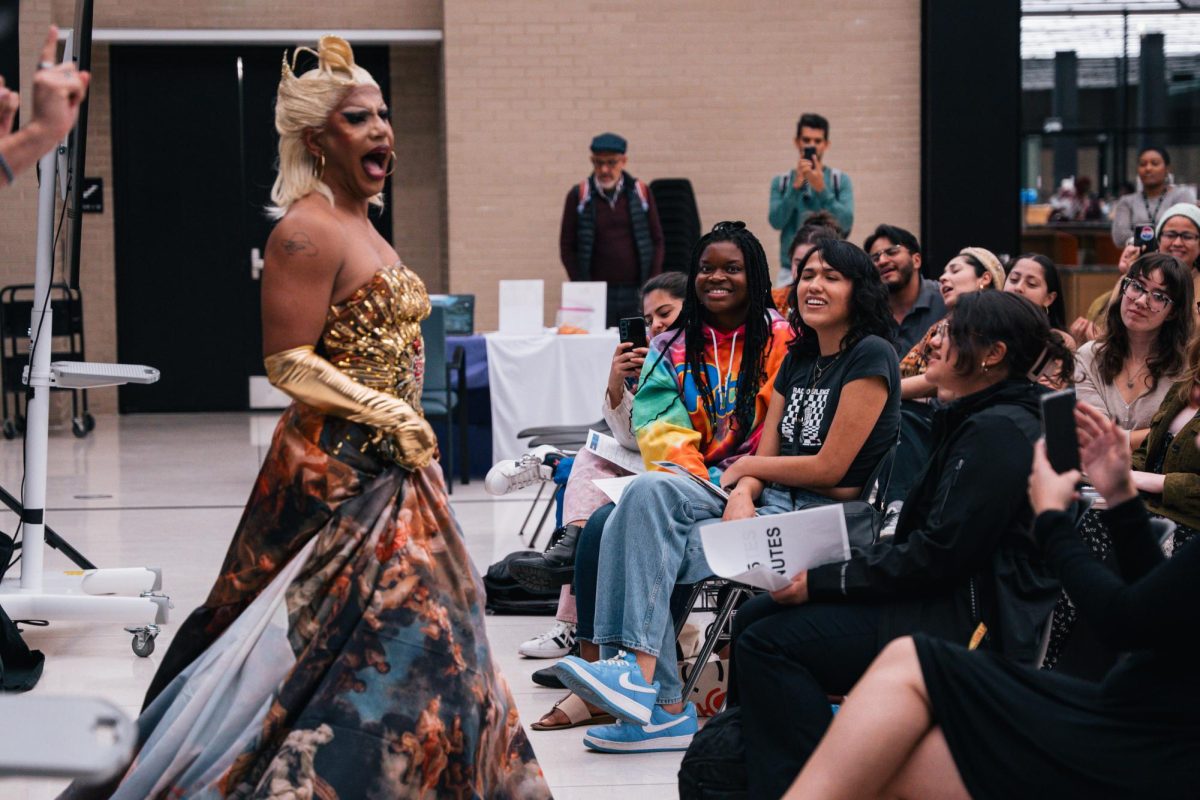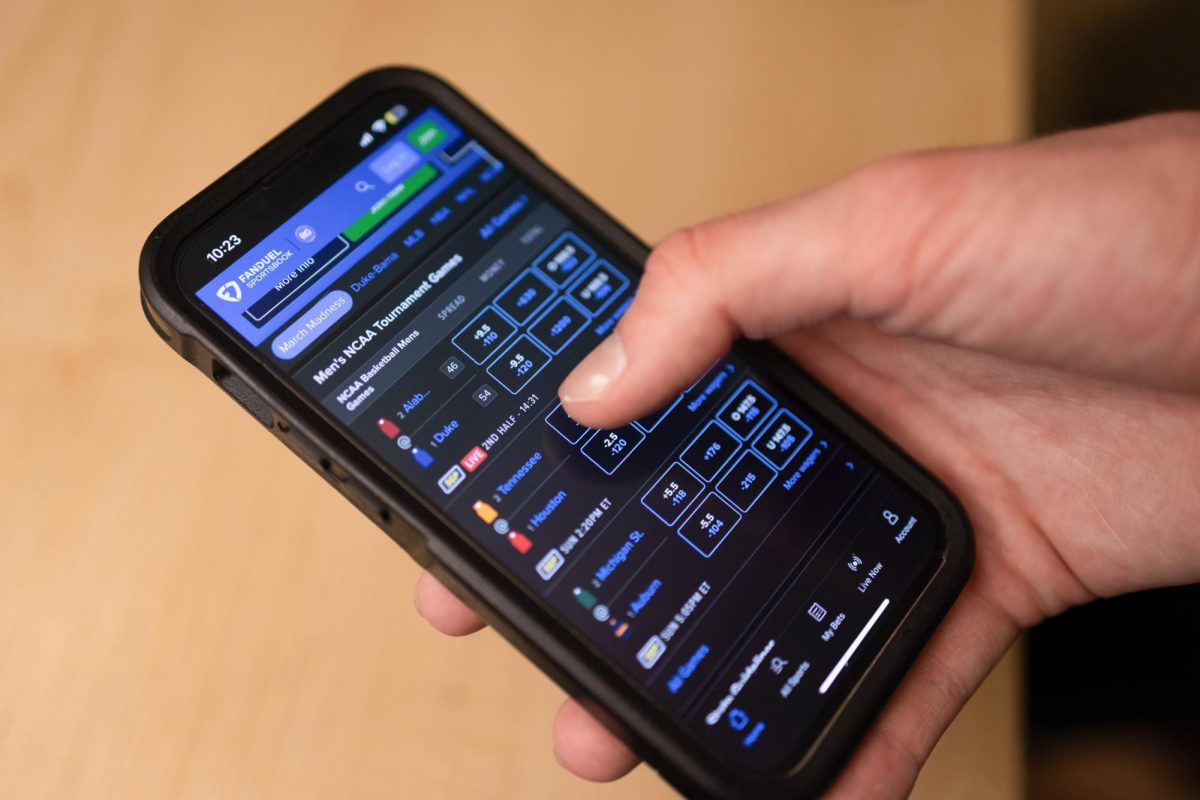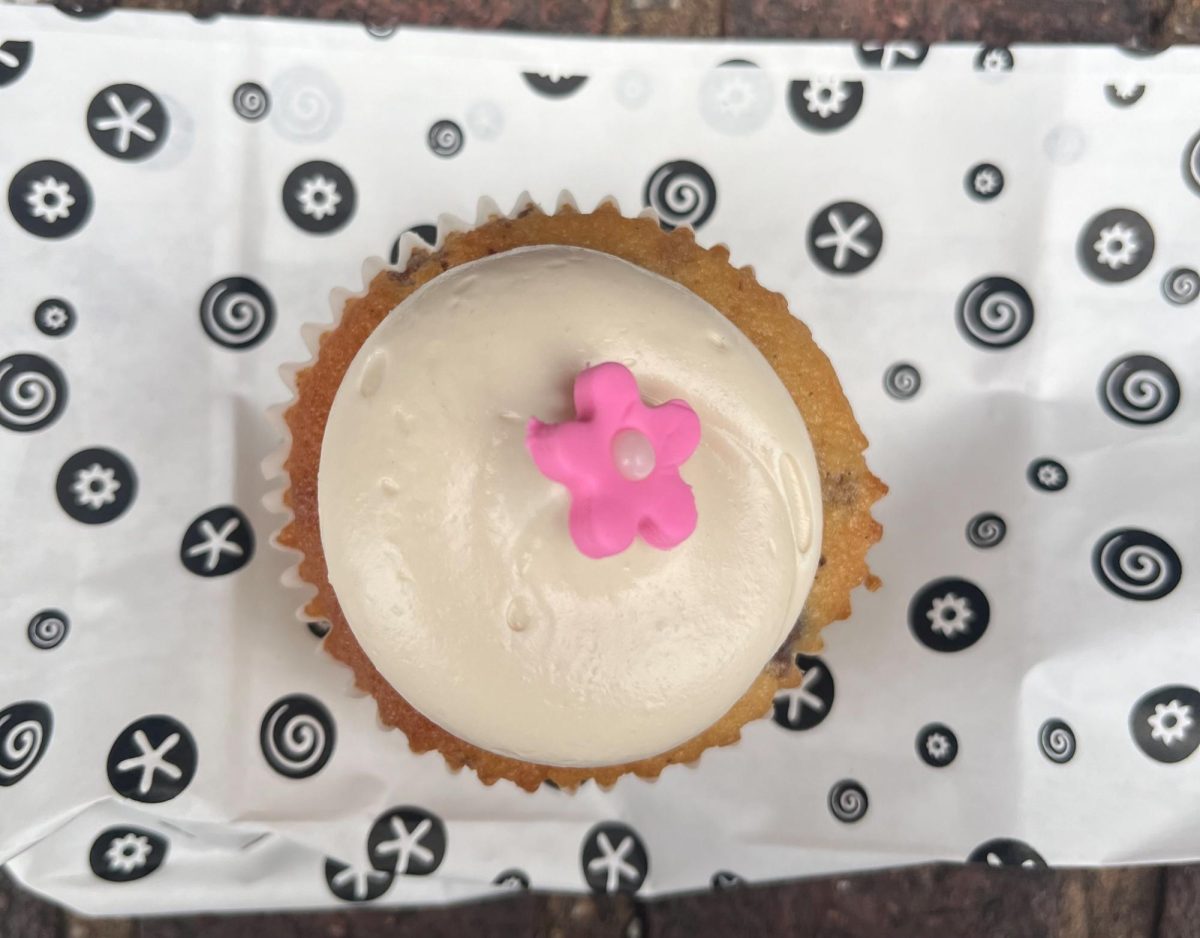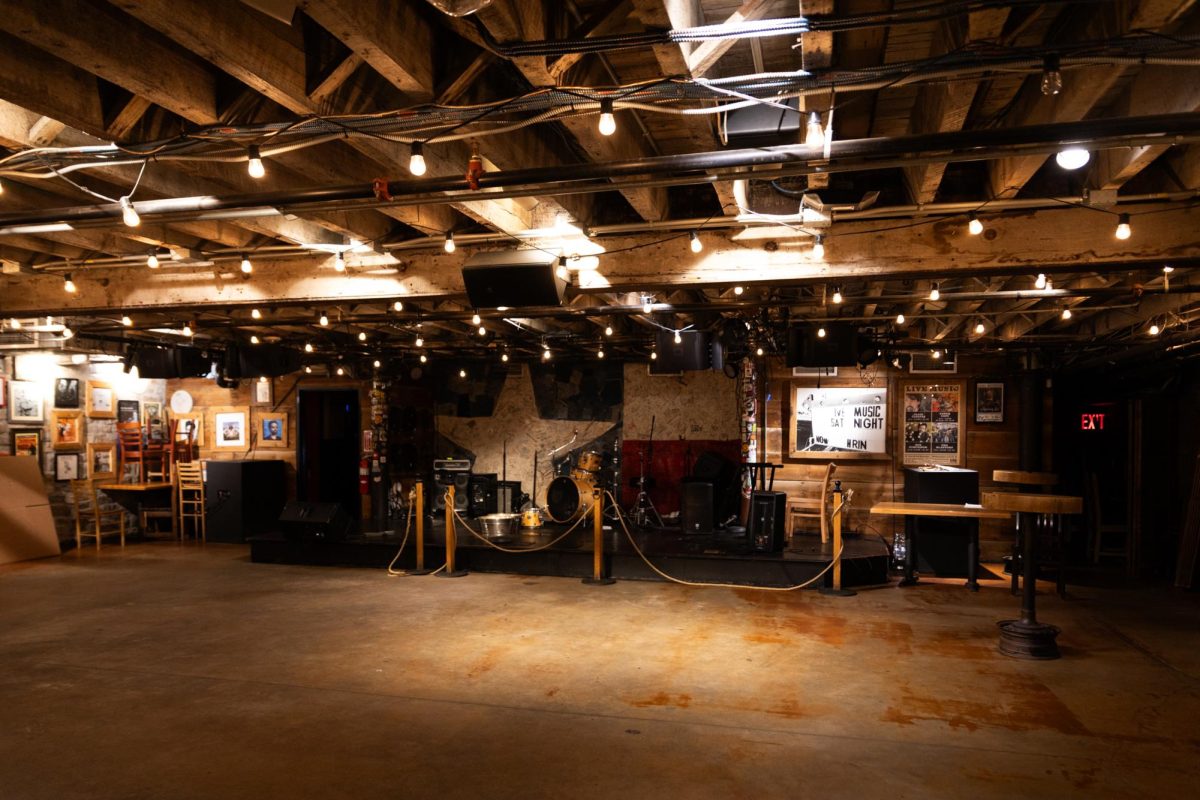Draped in a glittering, gold gown, D.C. drag queen Mari Con Carne strode through the rows on the first floor of the Martin Luther King Jr. Memorial Library.
As Carne lip synched to Spanish ballads among stacks of library books and about 40 attendees, they collected cash tips from audience members who belted along to the serenades of famed Spanish singer Rocio Dúrcal. Carne’s performance closed out education nonprofit HumanitiesDC’s Oct. 21 event “Beyond the Archives: Latine Drag History in Washington, DC,” which included a presentation and a panel with Carne, LGBTQ+ historian José Gutiérrez and Trans-Latinx DMV Director Alexa Rodríguez on the history of LGBTQ+ spaces and drag performance in the District’s Latine community.
Latine is a gender-neutral alternative to the term “Latino” that has grown in popularity in recent years, as some argue that “Latine” is a better alternative than the gender-inclusive “Latinx” because “e” is already used as a gender-neutral ending in other Spanish words.
Carolina Fuentes, the organizer of the event and an anthropology doctoral student, said the event is the “culmination” of her HumanitiesDC oral history fellowship that ran from May to October and involved organizing archives from HumanitiesDC’s grantees, like the Latinx History Project’s interviews with D.C. drag kings, and transferring them to the DC Public Library’s local history center. She said she wanted to honor members of the Latine community who paved the way for the District’s drag scene and platform current D.C. LGBTQ+ advocates through the event’s panel.
“I think it’s also important to see them and hear them from their own perspectives, in terms of assuming that this is what the LGBTQ community needs,” Fuentes said. “And I think that giving them the platform to do that and say, ‘Okay, this is what it took to get here and this is what we’re struggling with. And these are the challenges. And this is what allies could do to support.’”
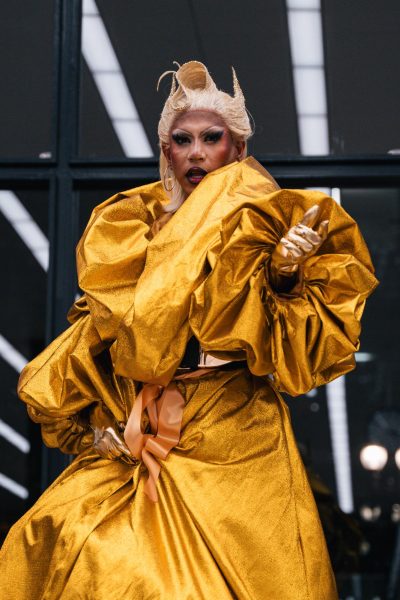
During her presentation, Fuentes highlighted six Latine LGBTQ+ bars, clubs and restaurants that opened in D.C. in the 1990s and were frequent spaces for drag performances until closing in the late 1990s and 2000s. Through a selection of Gutiérrez’s archived photographs and flyers from various salsa nights and drag performances across the District, Fuentes’ presentation painted a portrait of the Latine drag scene during the latter half of the 20th century.
Fuentes said the event’s focus on LGBTQ+ Latine history corresponds with her dissertation on the history of Salvadoran migration to the DMV area, specifically the experiences of Salvadoran trans women in the region, and she plans to incorporate the research she presented during the event into her dissertation.
“In the 1980s, Latines had special dance nights and venues, such as Tracks, as well as many Latine restaurants,” Fuentes said during her presentation. “But in the 1990s, Latine LGBTQ+ folks had their own bars and nightclubs where they could perform.”
Fuentes said the Adams Morgan bar El Faro opened as the District’s first Latine LGBTQ+ bar in 1991 and operated until 1995. She added that El Faro’s patrons frequently faced hostility and violence, including Ana Maria Morales, who was killed outside of El Faro in 1993 and five other customers were assaulted in that same year.
Fuentes said Noa Noa, a Latine LGBTQ+ restaurant and bar, operated in Adams Morgan from 1995 to 2015 in the storefront now occupied by Shenanigan’s Irish Pub. Today, a new iteration of Noa Noa called Noches Noa Noa is located on Georgia Avenue near Brightwood Park in the Northwest quadrant.
Following her presentation, Fuentes kicked off the moderated discussion with Carne, Gutiérrez and Rodríguez, covering their experiences in the D.C. drag performance scene and how archiving oral histories, posters and photographs from members of the Latine LGBTQ+ community can preserve the community’s history and inspire younger generations.
Carne said when they performed at “The Future of Drag Show” during the Kennedy Center’s “The Wig Party: A Capital Drag Festival” in June 2021, they chose to wear a coat and a leotard adorned with the Mexican flag in order to represent their Mexican culture within a “very white space,” like the Kennedy Center.
“Ever since then, I was like, there’s a need for representation happening in these white spaces where it’s unapologetic Latine,” Carne said.
Early in their drag career, Carne said they were unable to find Latine venues, like the spots Fuentes included in her presentation and have since “demanded” more representation for Latine performers in predominantly white LGBTQ+ venues in D.C. They said venues should not engage in “tokenism” by only hiring Latine drag performers but not any Latine producers, DJs or promoters and strive for a more holistic appreciation of Latine members of the LGBTQ+ community.
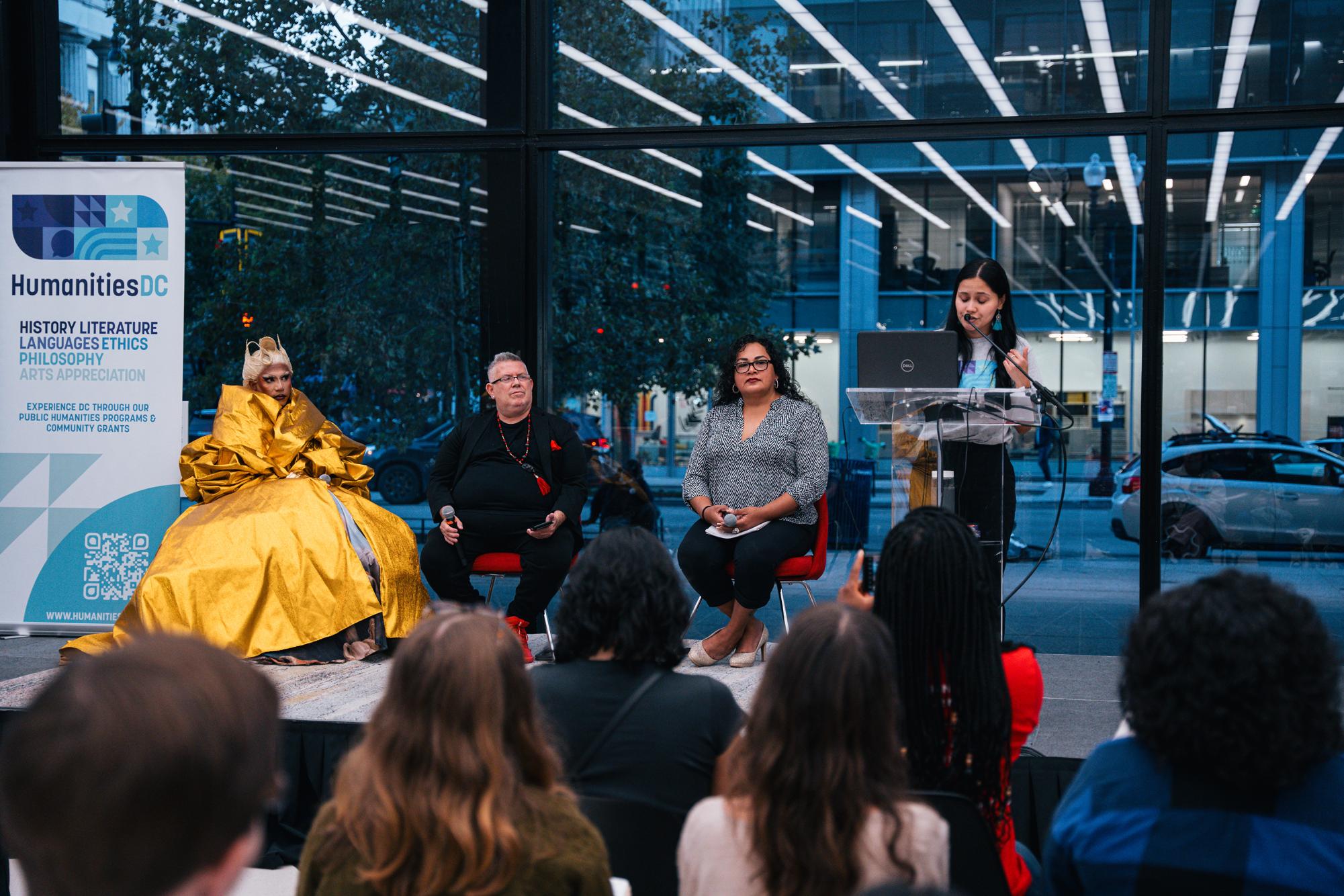
“D.C. Latine community is D.C.,” Fuentes said. “I don’t need to go to Virginia, to Maryland. We are part of the community. And unfortunately, all these venues are, may they rest in peace, but the chance for us to be there is always there if we took it. So be loud, be proud and honestly, be unapologetic about it.”
Gutiérrez, who is the founder of the José Gutiérrez Archives, the Latino GLBT History Project and the DC Latino Pride, said he started archiving materials, like pictures, banners and flyers, related to the Latine LGBTQ+ community in the late 1980s after observing a lack of archival work dedicated to preserving the community’s history.
“It’s extremely important to collecting and preserving and also to educate the community, our next generations because it’s the only way that they can learn from us in the past,” Gutiérrez said.
Throughout the panel, Gutiérrez held up photographs of pioneers in the District’s Latine LGBTQ+ community who have passed away, like Bella Evangelista, a Guatemalan transgender woman who performed at former Latine venues, like Escándalo in Dupont Circle and was killed near Georgia Avenue in 2003.
A D.C. law named after Evangelista went into effect in May 2021, prohibiting the use of the “panic defense” in criminal cases surrounding violent acts against LGBTQ+ people, in which perpetrators would argue that their victim’s sexual orientation or gender identity caused them to “panic” and attack them in “self defense.”
Rodríguez said those who participate in the drag scene are able to find a “chosen family” among their peers, despite how drag performance is stigmatized in the cultural discourse and restricted through legislation across the country.
“In drag, you will find family and support and guidance, and that’s something that we don’t see out there, because drag, it can be stigmatized,” Rodríguez said.
Rodríguez said she founded Trans-Latinx DMV in 2014 to “bridge” the gap in community resources for the Latine LGBTQ+ community by creating a weekly support meeting for trans Latine people and pushing local organizations to better support LGBTQ+ members of the community.
“We are here, and we’re not going anywhere, and we’re going to be keeping the eyes open for all these organizations to serve our community with respect and dignity,” Rodríguez said.


